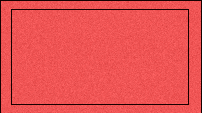| |
Advanced Placement English Literature and Composition
Ms. Buchanan-Lind in B203
303-982-1922 (vm)or
mbuchana@jeffco.k12.co.us
mbuchana@jeffcoschools.us(student use only)
http://mbuchananlind.com
Course Description: Advanced Placement English Literature and Composition is a full year course that is, in essence, a college level English class offered on a high school campus. The reading and writing experiences will be similar to those commonly found in introductory college literature courses. Students will take the Advanced Placement Literature and Composition test on May 4, 2016. The scores will be reported to colleges and units of credit given based on the policy at the individual college. Students enrolled in this class are expected to make a commitment to a rigorous curriculum of literary analysis and composition.
Literature Component: Advanced Placement Literature and Composition students will demonstrate the ability to:
1. read critically, ask pertinent questions about what they read, recognize assumptions and implications, and evaluate ideas.
2. read with understanding a range of literature that is rich in quality and representative of different literary forms and historical periods.
3. show an understanding of literature by analyzing specific literary texts in excerpts and in whole works, identifying plot, theme, point of view, characterization, setting, tone, mood, and style.
4. read a literary text analytically, seeing relationships between form and content.
5. complete a close reading of a specific text selection, identifying diction, syntax, figurative language, satire, irony, style, denotative and connotative meaning.
6. describe how language contributes both literally and figuratively to the meaning of a work.
7. respond actively and imaginatively to a literary work by describing its stylistic features, evaluating them in light of the theme, entertaining alternative approaches, or dramatizing the circumstances or effects of the work.
8. draw conclusions about the themes of a work, appraising them and speculating independently on related ideas.
9. think reflectively about what they have read and discussed and apply their findings to their own lives.
10. value literature as an imaginative representation of truth or reality.
Writing Component: Advanced Placement English Literature and Composition students will demonstrate the ability to:
1. view writing as a developed discipline that includes collecting information, formulating ideas and determining their relationships, drafting paragraphs and arranging them in an appropriate order with transitions between them, and revising what they have written.
2. write as a way of discovering and clarifying ideas.
3. write an essay of literary analysis discussing the salient literary features of a specific text, displaying an effective thesis and organizational structure, including the selection of appropriate detail to support the thesis, insight, and efficient use of diction and syntax.
4. respond directly and efficiently to questions that require a timed essay, organizing quickly and clearly, focusing on major points that provide a competent response to the question as asked and developing each major point fully.
5. write appropriately for different occasions, audiences, and purposes (persuading, explaining, describing, and interpreting).
6. use the conventions of standard written English with skill and assurance.
7. maintain a consistent tone and appeal (emotional, logical, or ethical) through precise syntax, phrasing, and diction.
8. summarize clearly and accurately the ideas of others.
9. collect data from secondary sources, use it judiciously, and document it accurately.
10. respond insightfully to quotations selected from literature studied.
Rubrics: All in-class essays are scored using 6 Point and 9 Point rubrics similar to rubrics used to score AP compositions. Scored Discussions and out of class essays are scored with various, assignment-appropriate rubrics
Assessments and Instructional Strategies:
1. Essays (in and out of class), reflections(informal each class meeting, formal each six weeks), and summaries, college application essays/scholarship essays
2. Reading response quizzes
3. Multiple choice reading assessments
4. Projects such as independent novel projects/presentations and poetry presentations
5. Socratic Seminars, Last Word Protocols, Chalk Talks, text-based discussions, text-rendering discussions, Scored Discussions, fishbowl discussions
6. Brief lectures
Explorations of the Human Experiences through Literature:
The following themes will be explored via multiple sources throughout the year.
Moral ambiguity
Power
Religion/supernatural
Racism
Evil
Gender Roles
Insanity
Cultural Values
Isolation
Religion
Conformity
Government
Science
Sense of self
Parent/Child Relationships
Environment
I use the following texts to explore the various themes:
Summer Reading:
The Stranger by Albert Camus
Assessment: Essay
First Semester:
Students submit a college application essay from a
college/university of their choice during the summer.
I grade them, provide constructive criticism, and then
ask students to revise their application essay, which
they will turn in within the first week. We complete
two college/university application essays within the
first three weeks of the semester.
Hamlet by William Shakespeare
Assessment: Essay
Picture of Dorian Gray by Oscar Wilde
Victorian Poetry
Assessment: Essay
Never Let Me Go by Kazuo Ishiguro
Assessment: Essay
Poetry: Poetry presentations, Responses, poetry terms:
chiasmus, anaphora, conceit, synechdoche
Assessment: Presentations and essays
Winter Break: Read A Doll's House by Henrik Ibsen
Semester 2
Heart of Darkness by Joseph Conrad
“The Hollow Men” by TS Eliot
“Dante’s Inferno” excerpt by Aligheri
“White Man’s Burden” by Stevenson
“Them Bones” by Lucille Clifton
“Racism in Heart of Darkness” by Chinua Achebe
“Everyone’s a Little Bit Racist” by Avenue Q players
“Hollow Men” by REM
Assessments: Essay
Poetry Study: Sonnet, aubade, villanelle, ballad, ode,
epithalamion, sestina
Romantics including Blake, Wordsworth, Shelley,
Keats, Gray, Byron
Bless Me, Ultima by Rudolfo Anaya
Victorian Poetry including: the Brownings, Hardy
Also, Meditation 17 and Donne poetry
Assessments: Essay
One Flew Over the Cuckoo's Nest
Assessments: Essay
Independent Novel
Poets we study include:
Christopher Marlowe Sir Walter Raleigh
Samuel Taylor Coleridge John Donne
William Wordsworth John Keats
William Blake Percy Bysshe Shelley
George Gordon, Lord Byron Alexander Pope
Alfred, Lord Tennyson Seamus Heaney
Pablo Neruda Lucille Clifton
Langston Hughes Countee Cullen
Maya Angelou Sylvia Plath
Billy Collins Ted Hughes
Wilfred Owen Anne Sexton
Adrienne Rich Imamu Amiri Baraka
Gwendolyn Brooks Marianne Moore
EE Cummings Margaret Atwood
|












